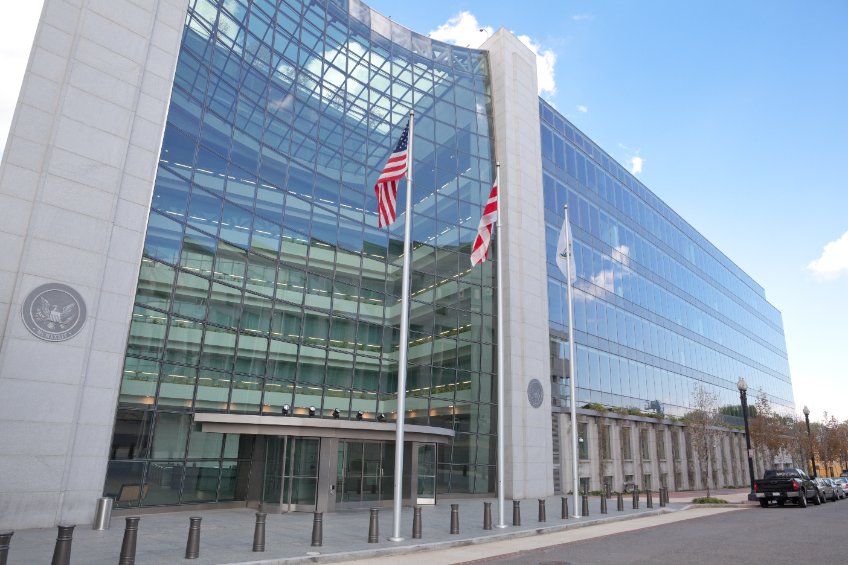With the raft of new draft legislations across nations around the world aimed at the crypto industry, Laguna Labs CEO, Stefan Rust, has stated that the centralized regulations will choke the innovation witnessed within the crypto space.
Stefan Rust says that “the very foundation of cryptocurrency is one that is antithetical to global regulation and the centralized financial system that regulators seek to uphold and protect.”
Are you looking for fast-news, hot-tips and market analysis? Sign-up for the Invezz newsletter, today.
Crypto legislation raising eyebrows
There are two draft legislations that have raised eyebrows within the crypto industry.
In the US, Congress is currently conducting negotiations on responsible digital asset development since President Biden’s March 9 executive order. There are specifically two bills under consideration in the US, both of which are focused on USD-pegged stablecoins.
One of the bills under consideration in the US if passed will require one-to-one reserve backing for the USD-pegged stablecoins providers. There is another bill that if passed will force USD stablecoin providers fully disclose their reserve assets.
The third bill under negotiations in the US is aimed at limiting algorithmic stablecoins. This legislation will allow the US Securities and Exchange Commission (SEC) to introduce a two-year ban on the creation or issuance of new algorithmic stablecoins. This will in addition give the regulator a grip on what it sees as a dangerous threat to the global financial ecosystem.
The US bill targeting algorithmic stablecoins refers specifically to “endogenously” collateralized stablecoins: a term used to refer to stablecoins whose value is secured by another digital asset created specifically for that purpose. To be precise, the bill focuses on algorithmic stablecoins like the famous Terra Luna UST debacle that led to the collapse of the original Terra LUNA project. Those behind the Terra Luna debacle that took out about $60 billion are facing legal battles in South Korea including Do Kwon who is the founder of Terra Foundation.
Away from the United States of America, the European Union (EU) is also readying to publish the much-awaited Markets in Crypto Assets Regulation Act (MiCA). The MiCA will require crypto companies to register with regulatory authorities, offer clear information to new investors, and also hold sufficient capital to back stablecoins.
Centralized regulation is bad for crypto
The first cryptocurrency Bitcoin (BTC/USD) was created in 2009 to counter the mess that resulted in the global financial crisis of 2008/09. The financial crisis resulted from unethical and illegal lending practices across many banks leading to a catastrophic financial downturn that robbed millions of people of their jobs, savings, homes, and more. What followed was enormous government bail-outs and the beginning of loose monetary policies throughout a majority of Western countries.
The founder(s) in response to all these created a totally decentralized monetary system free from the control of any government, individual, or organization. They simply identified the shortcomings of the traditional financial institutions and sought a people’s powered solution. Therefore, the very foundation of cryptocurrency is antithetical to global regulation and centralized financial systems.
According to Stefan:
“Many in the industry are welcoming some or all of these regulations. However, we should be cautious. Governments around the world are clearly now recognizing the emergence of crypto, which is slowly becoming too big to fail – not least because institutional investors are increasingly entering the market. And of course, looking after the interests of institutional investors is among the top priorities for global regulators.”
Self-regulation best for crypto
Although Stefan is against centralized crypto regulation, that does not mean he is totally against the regulation of the industry.
Lessons are surely been learnt following the devastating UST collapse and the many crypto hacks and exploits that have become so rampant within the crypto space.
According to Stefan:
“Unlike traditional finance, the crypto industry is still largely a community of builders interested solely in innovation and progress. Indeed, while the SEC proposes a two year ban simply so it can understand what an algorithmic stablecoin is, these builders have already moved on from UST.
Led by founders and investors like Sam Bankman-Fried, the industry has already implemented significant changes, with a focus on consolidating failed centralized platforms and bringing them back into the fold of decentralized finance – where crypto belongs. Meanwhile, innovators are building new kinds of “stable” tokens backed by assets more meaningful than fast-depreciating fiat currencies.”
Laguna Labs’ flatcoin project
Stefan goes ahead to give an example with Laguna Labs which is working on a “flatcoin,” which is a type of token that holds its purchasing power from the moment it is purchased to the moment it is sold. The token known as “Nuon” is basically pegged to a basket of consumer goods and services representing the rising cost of an average person’s living standard.
The Nuon is designed to hold its peg through a dynamically adjusting algorithm which is different from the likes of UST stablecoin. It is also entirely decentralized.
Stating his belief, Stefan said:
“We and other innovators like us believe that crypto should offer real and viable alternatives for average people to transact, save and invest in a way that preserves, protects, and grows their wealth, privacy, and independence. This is the type of innovation that is essential in a thriving economy and which is at risk of being crushed by the blunt instrument of centralized regulation.”
Invest in crypto, stocks, ETFs & more in minutes with our preferred broker, eToro.
10/10
68% of retail CFD accounts lose money
[ad_2]
Image and article originally from invezz.com. Read the original article here.

